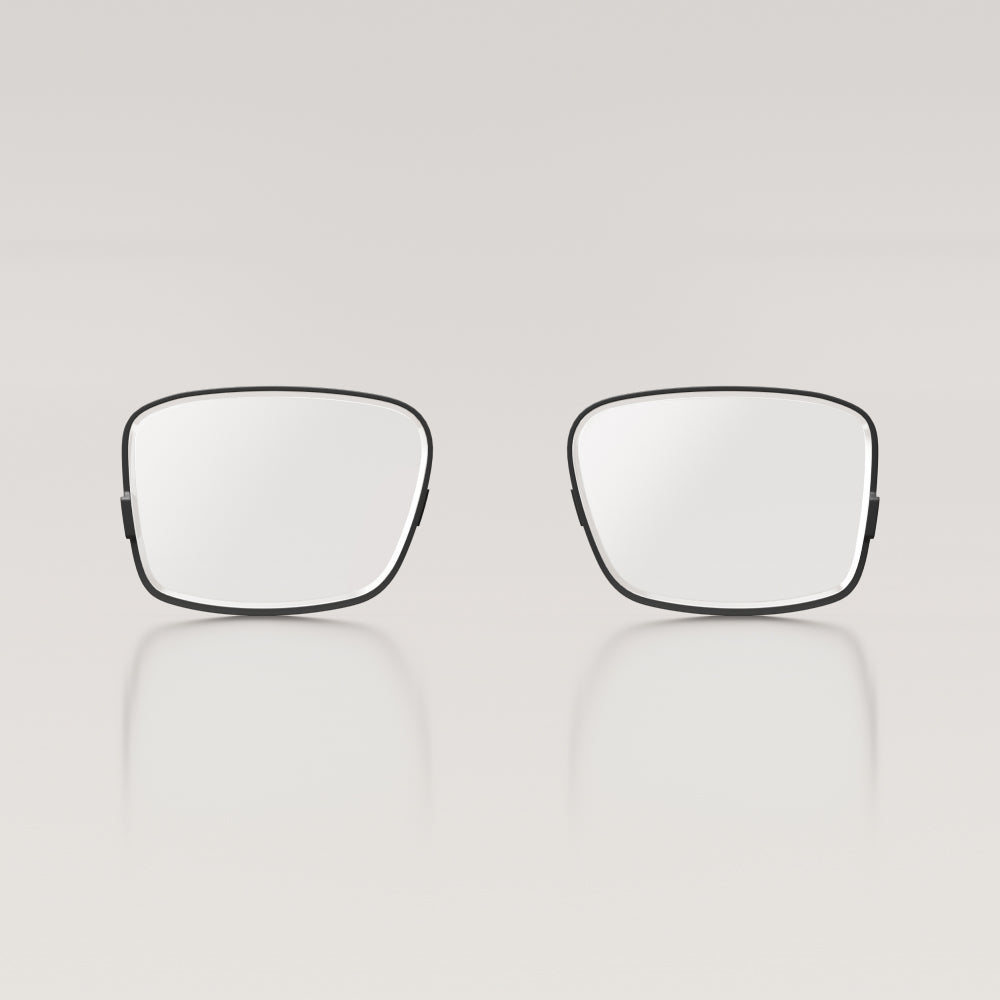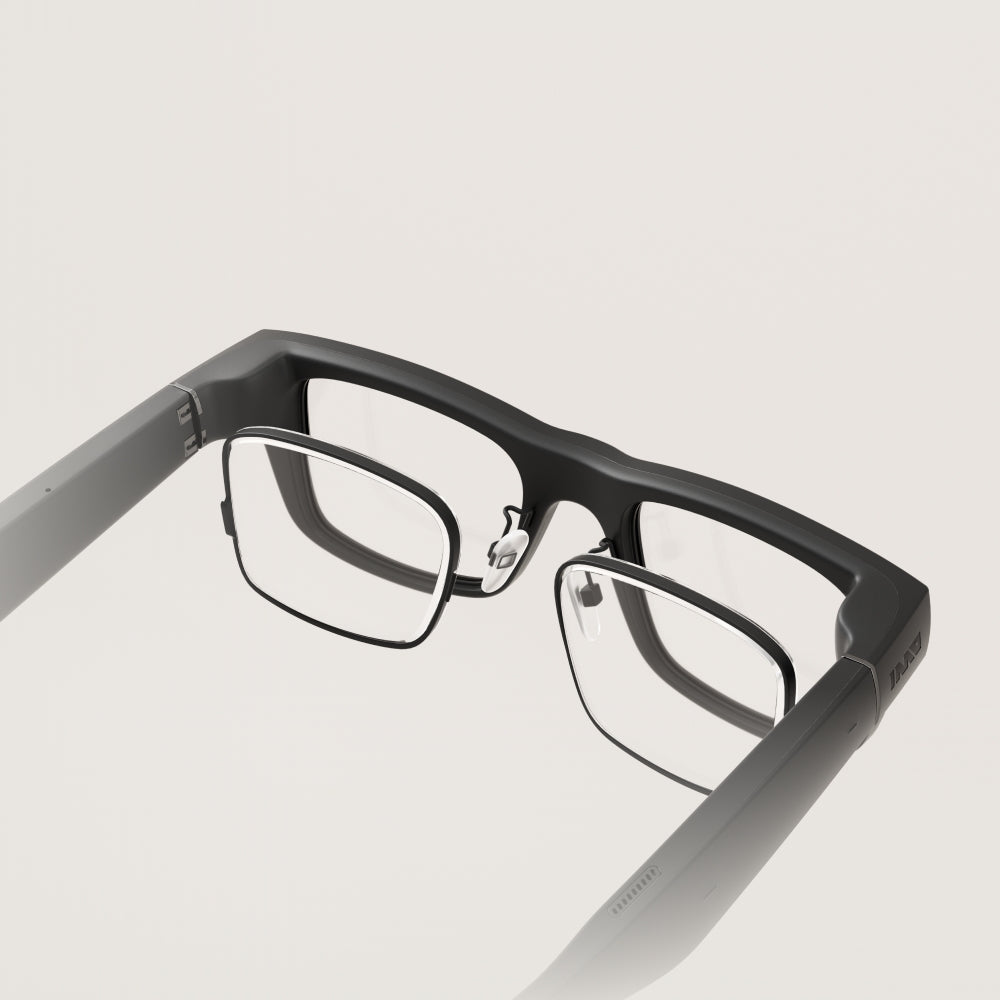

Lenses frame for INMO GO2
Exclusive custom-made frames. After receive, please arrange for lens fitting at an optical store.
Note: This product includes the frame only and does not contain prescription lenses.

Lenses frame for INMO GO2
If you have any questions, you are always welcome to contact us. We'll get back to you as soon as possible, within 24 hours on weekdays.
-
Shipping Information
Use this text to answer questions in as much detail as possible for your customers.
-
Customer Support
Use this text to answer questions in as much detail as possible for your customers.
-
FAQ’s
Use this text to answer questions in as much detail as possible for your customers.
-
Contact Us
Use this text to answer questions in as much detail as possible for your customers.
I. Understanding Lenses: Spherical Lenses vs. Aspherical Lenses
A. Conventional curved lenses have low compatibility with AR smart glasses, affecting clarity.

Given that smart glasses have a more complex design compared to regular glasses, a cemented layer is necessary to ensure the lenses are securely attached and less prone to falling off. Additionally, considering the fit between the front and back lenses, the rear lens should feature a flat front surface design, which not only ensures a perfect fit but also enhances aesthetic appeal.
B. Conventional curved lenses have significant aberrations, limiting the peripheral vision when wearing AR smart glasses.

Conventional curved lenses produce blurry peripheral images, which significantly degrade the visual experience.
Conventional curved lenses, due to poor alignment of the front surface with the waveguide, result in unstable lens positioning, causing blurry and distorted imaging. For AR smart glasses, specialized lenses designed to match the smart glasses are needed. For example, concave lenses can fit well with the waveguide, ensuring clear vision and maintaining clarity in peripheral imaging.
II. Five Key Points to Note When Getting Lenses Fitted
When you take our selected frames to a professional optical store to have lenses fitted, please be sure to pay attention to the following points to ensure the comfort, clarity, and your ultimate satisfaction with the final glasses:
Prepare the Latest Professional Eye Prescription: Use an eye prescription issued by a professional ophthalmologist or optometrist for lens fitting. Please ensure the prescription includes: sphere, cylinder, axis, and pupillary distance (PD). If you have farsightedness or presbyopia, it will also include the add power (ADD) for distance and near vision.
Clearly Inform the Optician That the Lenses Are for INMO Frames and Emphasize the Fit: Before choosing lenses, please be sure to hand the INMO frames to the optician. Clearly inform them that these frames will be used for an INMO smart glasses device and emphasize that the lenses need to be perfectly fitted and securely installed to ensure they do not interfere with INMO's built-in waveguide and overall functionality. A professional optician will recommend the most suitable lens refractive index and type based on the INMO frames' special material, precise dimensions, frame style, face-form angle, and curvature, combined with your prescription. This will ensure the lenses are perfectly embedded, maximize aesthetics, reduce lens thickness, and ensure synergistic operation with the INMO device.
Choose Appropriate Lens Material and Function Based on Your Visual Needs: Lenses differentiate by more than just prescription strength. They come with different refractive indices (generally, a higher index means thinner and lighter lenses, especially suitable for high prescriptions), various materials (e.g., high-quality resin, PC protective material), and a wide range of additional functional coatings. Please discuss your daily visual habits, work environment, lifestyle, and budget in detail with the optician to carefully choose the lens combination that best meets your needs.
Actively Communicate and Ask Questions: During the lens fitting process, if you have any questions regarding lens selection, optical parameters, installation process, price, after-sales service, or the adaptation period for new glasses, please do not hesitate to proactively consult the optician.
New Lens Adaptation and External After-Sales Service: Newly fitted lenses typically have a brief adaptation period. Please inquire with your chosen optical store about their warranty policy and scope of after-sales service for the lens products they provide. This way, if you experience persistent discomfort after the adaptation period (e.g., dizziness, blurred vision, visual distortion), you can promptly return to the store for a professional check-up and necessary adjustments.
INMO is only responsible for selling the frames; self-fitting lenses may lead to incompatibility, which could affect the wearing experience and potentially damage the device's waveguide. Please consider this carefully. Furthermore, issues arising from self-fitting lenses are not covered by the warranty service.
